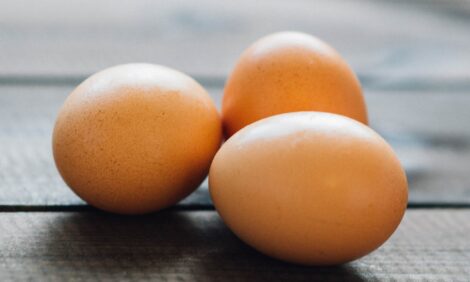



Local Producers Struggle in Face of Imported Poultry
GHANA - Local poultry farmers are battling for survival as the country imports frozen chicken to the value of US$200 million.Ghana's poultry farmers are struggling to survive crippling competition from their counterparts in developed countries as the country imports $200 million worth of chicken every year, according to Ghana Business News.
The major factors behind the declining state of Ghana's poultry industry are varied and complex but the most significant is government policy towards the sector's growth.
In small remote communities, poultry farming is everything. It is the mainstay of rural communities, providing the major and – in some cases – the only source of income for many inhabitants.
But failure of successive governments to come out with clear policies that will create much protection for the local poultry industry has triggered the import surge of frozen chicken from the USA and the European Union.
Worse still, imported chicken is being sold at below the cost of local chicken and farmers in Ghana simply cannot compete, resulting in the collapse of dozens of farms and the loss of hundreds of jobs.
Last year alone, the EU, US and Brazil together exported over 200,000 tonnes of frozen chicken to Ghana, valued at US$200 million.
In 2002, more than 26,000 tonnes of chicken was imported into the country, mostly from the EU where farmers receive generous subsidies for production, according to the report. In 2005, the figure was estimated to be as high as 50,000 tonnes. Ghana imports almost one-third of the EU's total frozen chicken that goes to Africa.
At a recent debate on the topic 'Is Importing Chicken Good for Ghana?' organised by Channel Two Communications, a strategic communications and media company, poultry farmers expressed their dissatisfaction with the status quo, blaming government for letting the poultry industry down.
"I don't think the government sees agriculture as an important tool. That's how I see it," said Alhaji Abdul-Salam, Managing Director of Akate Farms, one of the largest poultry farms in Ghana.
But Dr. Yao Graham at Accra-based research and advocacy organisation, Third World Network-Africa, attributes the demise of the industry to various factors including government policies.
"I'm not interested in the importers. Importers are entrepreneurs. They will find other opportunities in the economy if the economy is doing well. I am interested in the policies which create opportunity to import poultry – as having greater weight than the policies which stimulate local production."
Dr Tia Alfred Sugri, Ghana's Deputy Minister of Agriculture in-charge of Livestock, told Ghana Business News that the government is finding ways to use tariff and non-tariff measures to restrict the importation of chicken into the country.
Further Reading
| - | You can view the full article by clicking here. |











